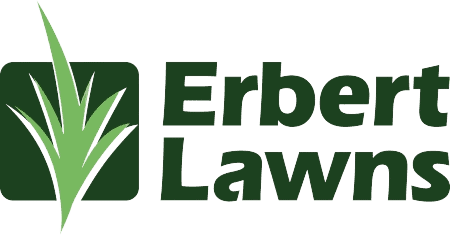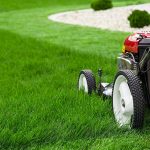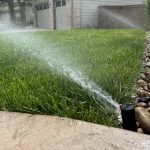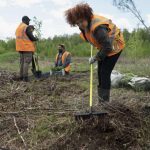Maintaining a lush, green lawn in Denver is no small feat. The unique climate, high altitude, and unpredictable weather patterns present significant challenges. At Erbert Lawns, we understand these hurdles and offer expert solutions to keep your lawn thriving year-round.
- Key Takeaways:
- Understanding Denver's Climate
- Watering Wisely
- Soil Matters
- Seasonal Care Strategies
- Pest and Weed Management
- Professional Lawn Care Services
- Challenges of High Altitude
- Tips for Managing High Altitude Lawn Care:
- Seasonal Lawn Care Strategies
- Soil Quality and Its Importance
- Pest and Weed Control
- The Role of Professional Lawn Care
- Why Choose Professional Services?
- Conclusion
- FAQs
Key Takeaways:
- Denver’s climate poses unique lawn care challenges.
- High altitude affects grass growth and water needs.
- Seasonal variations require tailored care strategies.
- Soil quality and pest control are critical for lawn health.
- Professional lawn care services can simplify maintenance.
Understanding Denver’s Climate
Denver’s semi-arid climate means that lawns face hot, dry summers and cold, snowy winters. This extreme variation requires a dynamic approach to lawn care. The high altitude also means more intense sunlight, which can dry out grass quickly.
Watering Wisely
Watering is crucial yet challenging in Denver. The dry climate necessitates frequent watering, but water restrictions can complicate this. Efficient irrigation systems and smart watering schedules are essential. Erbert Lawns recommends watering early in the morning to minimize evaporation and maximize absorption.
Soil Matters
Denver’s soil is often clay-heavy and compacted, which can hinder root growth and water penetration. Aeration and soil amendments, such as adding organic matter, are necessary to improve soil structure and fertility.
Seasonal Care Strategies
Each season brings unique challenges. In spring, dethatching and fertilization set the stage for healthy growth. Summer requires vigilant watering and pest control. Fall is the time for aeration and overseeding, while winter focuses on protecting the lawn from cold damage.
Pest and Weed Management
Denver lawns are susceptible to various pests and weeds. Integrated pest management (IPM) strategies, which include regular monitoring and targeted treatments, are essential for maintaining lawn health without over-reliance on chemicals.
Professional Lawn Care Services
Given the complexity of Denver’s lawn care needs, our team at Erbert Lawns understands how professional services can make a significant difference. We offer customized lawn care plans tailored to the specific challenges of your lawn. Our expertise ensures that your lawn remains healthy and vibrant throughout the year.
Challenges of High Altitude
Denver’s high altitude presents unique challenges for lawn care. At over 5,000 feet above sea level, the thinner air results in more intense sunlight and lower oxygen levels, both of which can affect grass growth. The increased UV radiation can scorch the grass, while the lower oxygen levels can hinder root development.
Tips for Managing High Altitude Lawn Care:
- Choose Altitude-Tolerant Grass Varieties: Kentucky bluegrass and tall fescue are excellent choices as they can withstand the high altitude and intense sunlight.
- Regular Watering: Increased UV exposure can lead to faster evaporation, necessitating more frequent watering. Use efficient irrigation systems to ensure the grass gets adequate moisture.
- Fertilization: Higher altitudes can affect nutrient absorption. Using fertilizers specifically formulated for high-altitude lawns can help.
Seasonal Lawn Care Strategies
Each season brings specific challenges to lawn care in Denver. Understanding these seasonal nuances can help you maintain a healthy and vibrant lawn year-round. Lawn disease prevention in different seasons is crucial for combating issues like fungal infections or stress-related diseases that vary with weather changes.
- Spring: Spring is the time to rejuvenate your lawn after the harsh winter months. Focus on dethatching, aeration, and fertilization to give your grass a healthy start.
- Dethatching: Remove the covering of dead grass and organic materials that might suffocate fresh growth.
- Aeration: Helps alleviate soil compaction and allows water, air, and nutrients to reach the roots.
- Fertilization: Applying a balanced fertilizer to promote healthy growth.
- Summer: Summer in Denver can be hot and dry, making consistent watering and pest control critical.
- Watering: Water early in the morning to reduce evaporation and ensure deep penetration.
- Mowing: Keep your grass slightly longer to shade the roots and reduce water loss.
- Pest Control: Monitor for pests and use integrated pest management strategies to keep them at bay.
- Fall: Fall is the perfect time to prepare your lawn for the winter months. Focus on aeration, overseeding, and fertilization.
- Aeration: Alleviates soil compaction and improves root development.
- Overseeding: Fills up bare places and encourages a lush, healthy grass.
- Fertilization: Applying a slow-release fertilizer to sustain grass through the winter.
- Winter: Winter lawn care in Denver is all about protection, preparation for the spring, and effective pest control in winter.
- Clear Debris: To prevent mold and mildew formation, remove any leaves and debris.
- Winterize Equipment: Ensure your irrigation system and other lawn care tools are ready for the cold months.
Soil Quality and Its Importance
Denver’s soil tends to be heavy in clay, which can lead to poor drainage and root development issues. Improving soil quality is crucial for a healthy lawn.
Improving Soil Quality:
- Soil Testing: Conduct soil tests to determine pH and nutrient deficiencies.
- Amendments: Add organic matter, such as compost, to increase soil structure and fertility.
- Aeration: Regular aeration helps break up compacted soil and allows for better water and nutrient absorption.
Pest and Weed Control
Pests and weeds are constant issues on Denver lawns. An integrated approach is necessary to manage them effectively without relying heavily on chemicals.
Integrated Pest Management (IPM):
- Monitoring: Regularly inspect your lawn for signs of pests and weeds.
- Biological Controls: Use natural predators and beneficial insects to control pest populations.
- Cultural Practices: Proper mowing, watering, and fertilization practices can reduce pest and weed problems.
The Role of Professional Lawn Care
Maintaining a beautiful lawn in Denver can be overwhelming given the various challenges. Professional lawn care services offer expertise and tailored solutions to ensure your lawn remains healthy and vibrant.
Why Choose Professional Services?
- Expert Knowledge: Professionals understand the specific needs of Denver lawns and can provide customized care plans.
- Time-Saving: Lawn care can be time-consuming, but the benefits of a well-maintained lawn are worth it. Hiring professionals allows you to focus on other activities while ensuring your lawn is well-maintained.
- Consistency: Regular, scheduled care from professionals ensures your lawn receives the attention it needs throughout the year.
Conclusion
Maintaining a healthy lawn in Denver requires understanding the unique climate, soil, and seasonal challenges. By implementing effective watering practices, improving soil quality, and managing pests and weeds, you can enjoy a lush, green lawn year-round. For personalized lawn care solutions, contact Erbert Lawns today and let us take the stress out of lawn maintenance.
FAQs
Q1. How often should I water my lawn in Denver?
Water your lawn 2-3 times a week, early in the morning to reduce evaporation.
Q2. What type of grass is best for Denver lawns?
Kentucky bluegrass and tall fescue are popular choices due to their drought tolerance.
Q3. How can I improve my soil quality?
Regular aeration and adding organic matter can significantly enhance soil structure and fertility.
Q4. When should I aerate my lawn?
Aerate in the fall when the grass is actively growing and can recover quickly.
Q5. What are common lawn pests in Denver?
Grubs, sod webworms, and billbugs are common pests that can damage your lawn.
Q6. How do I prevent weeds in my lawn?
Regular mowing, proper fertilization, and targeted herbicide applications can help control weeds.








